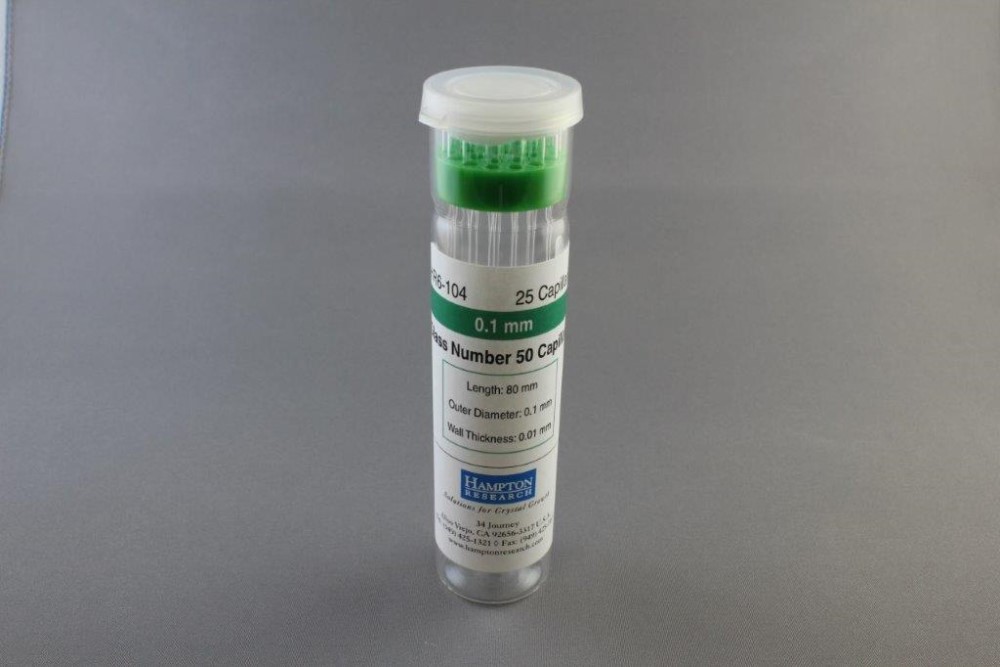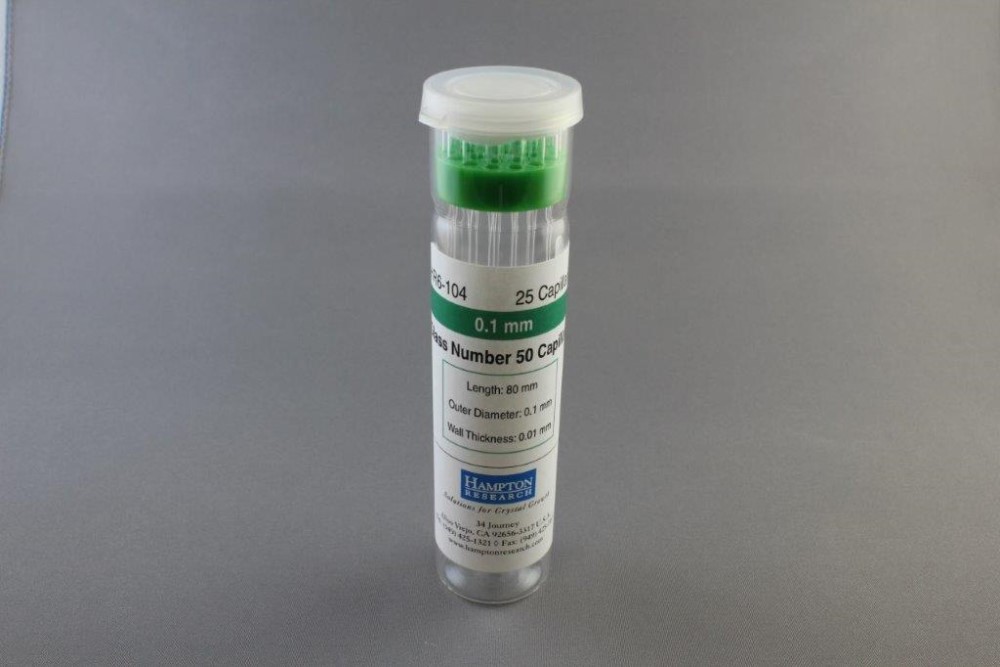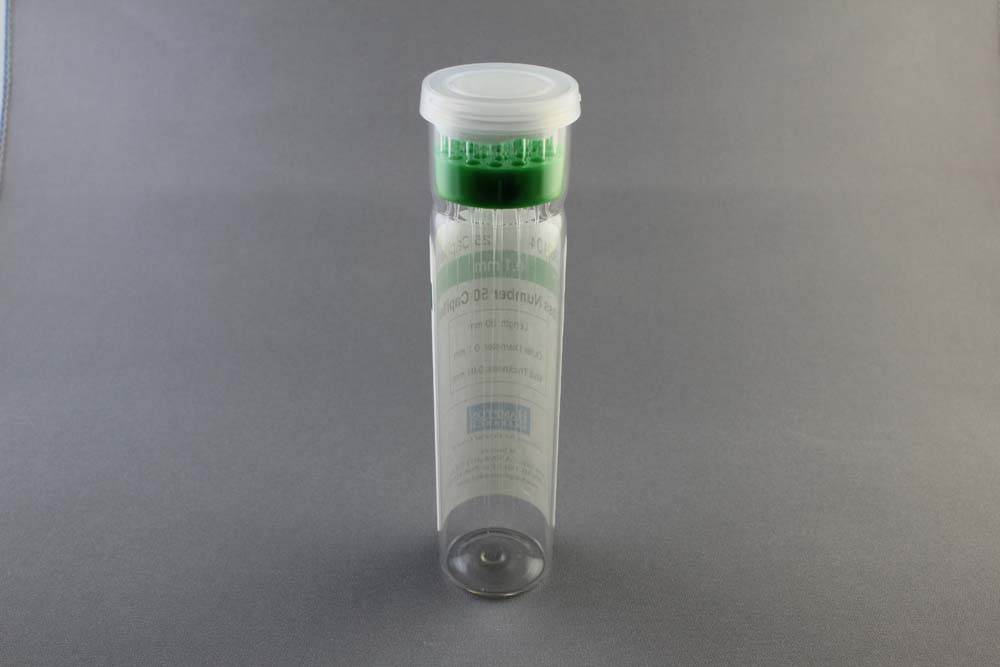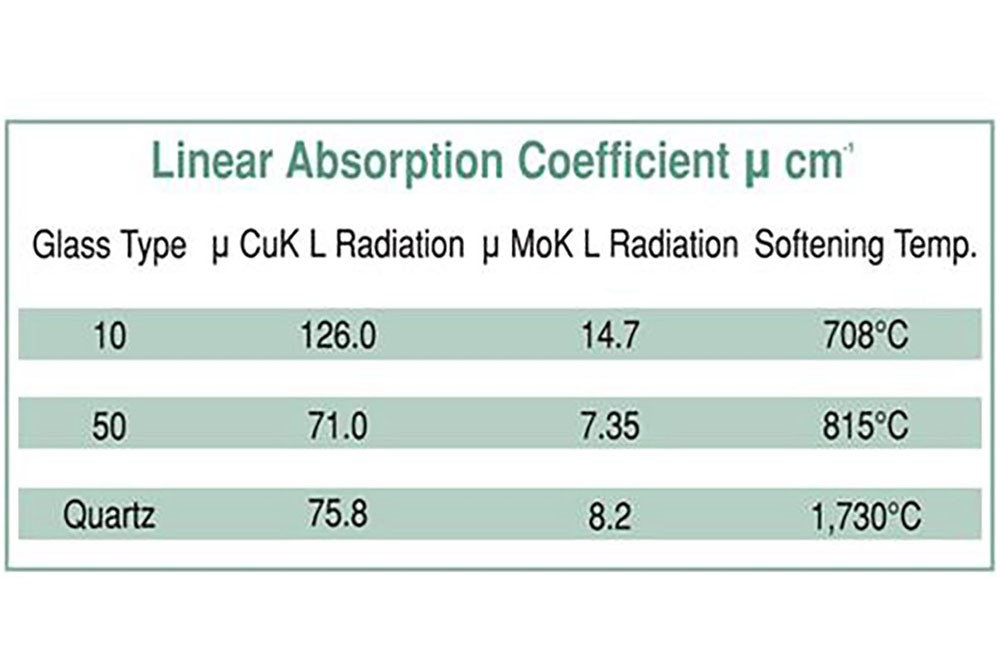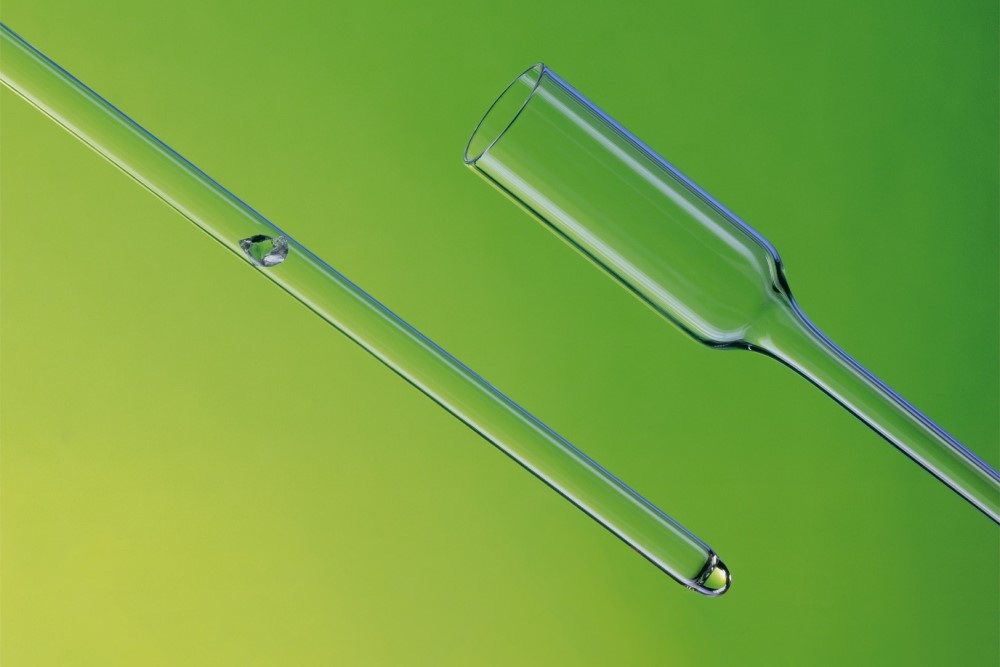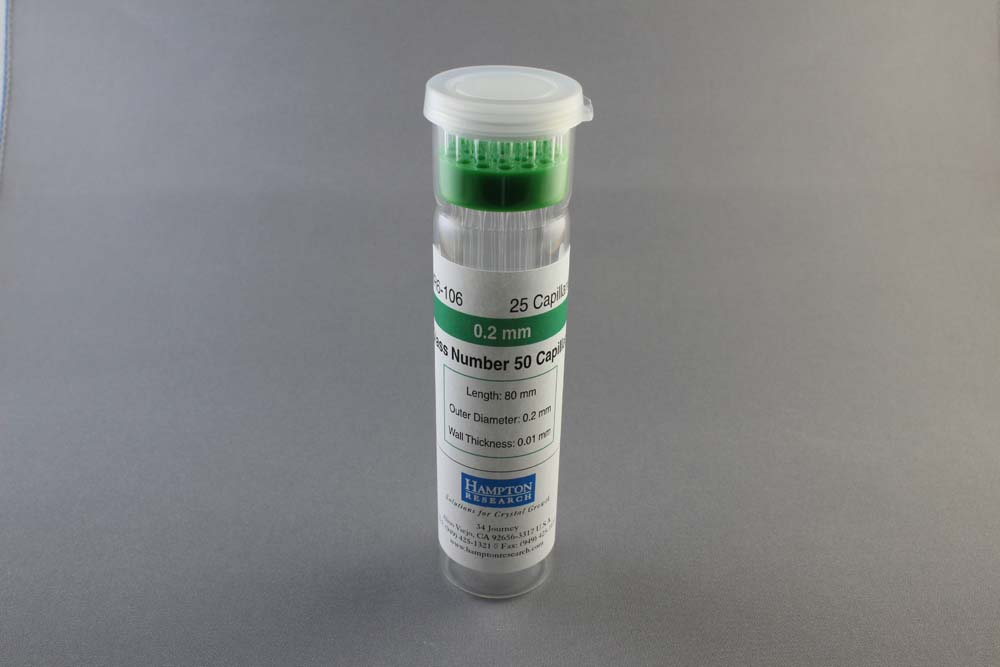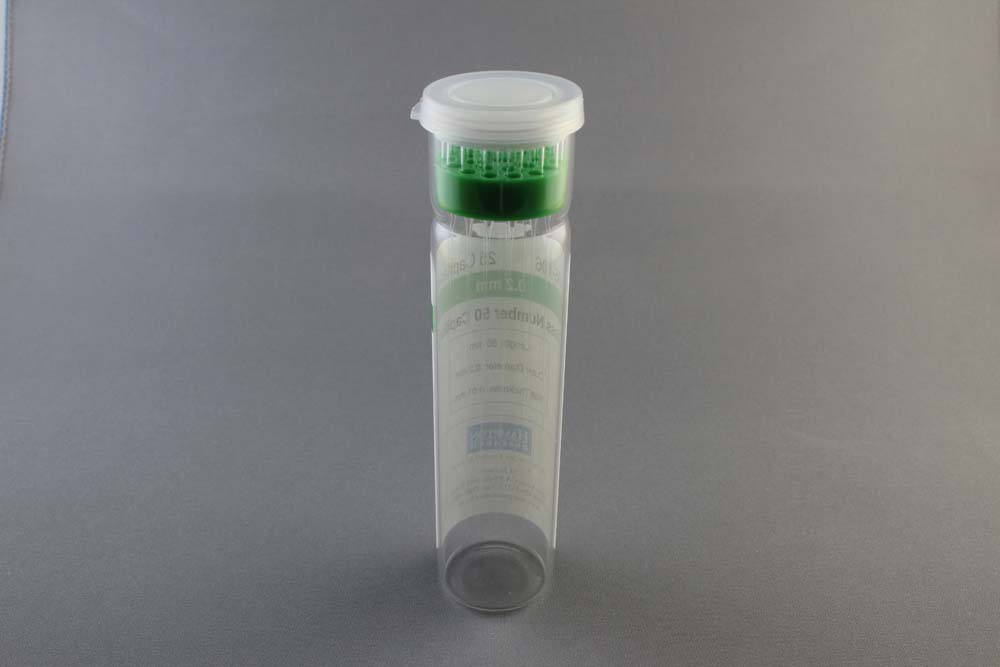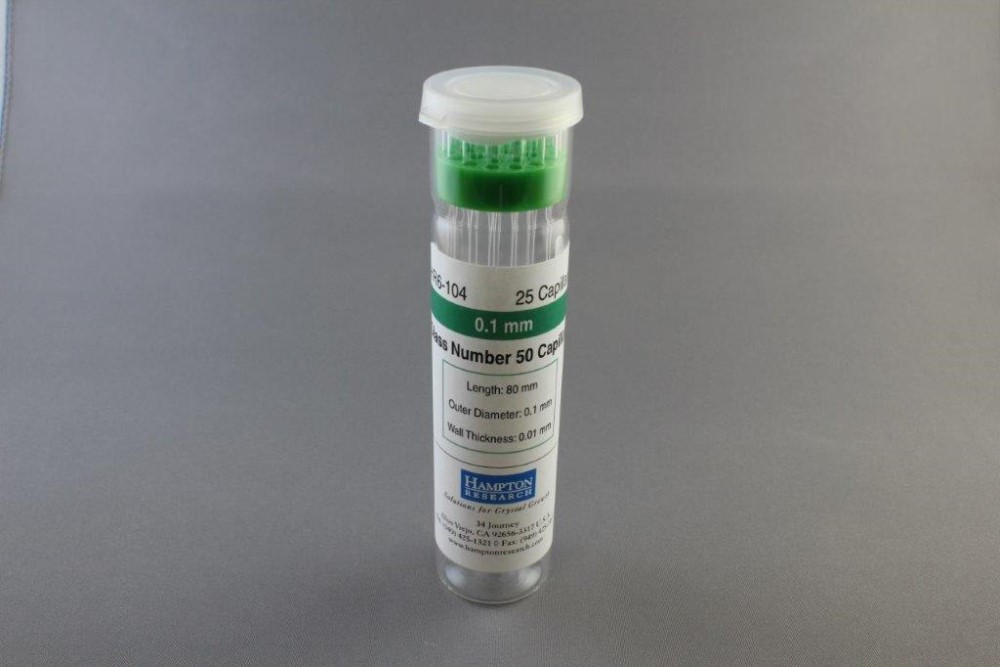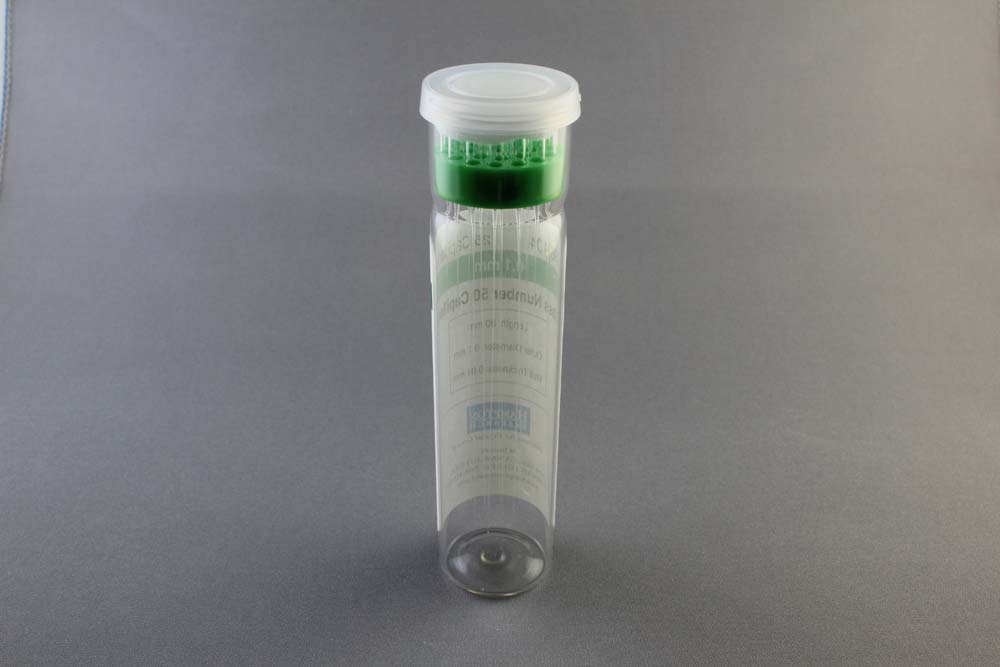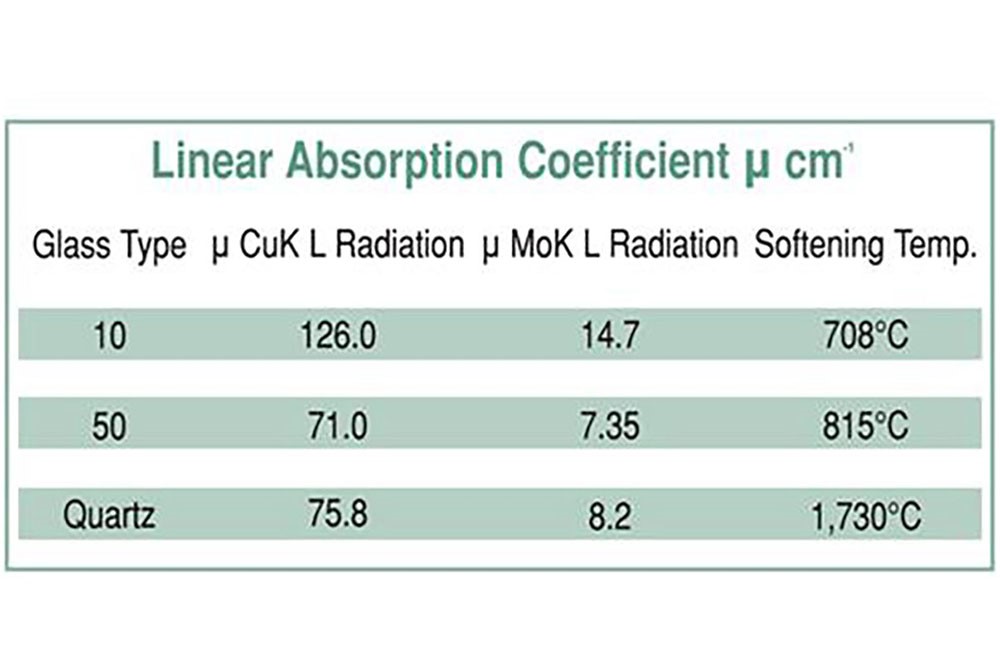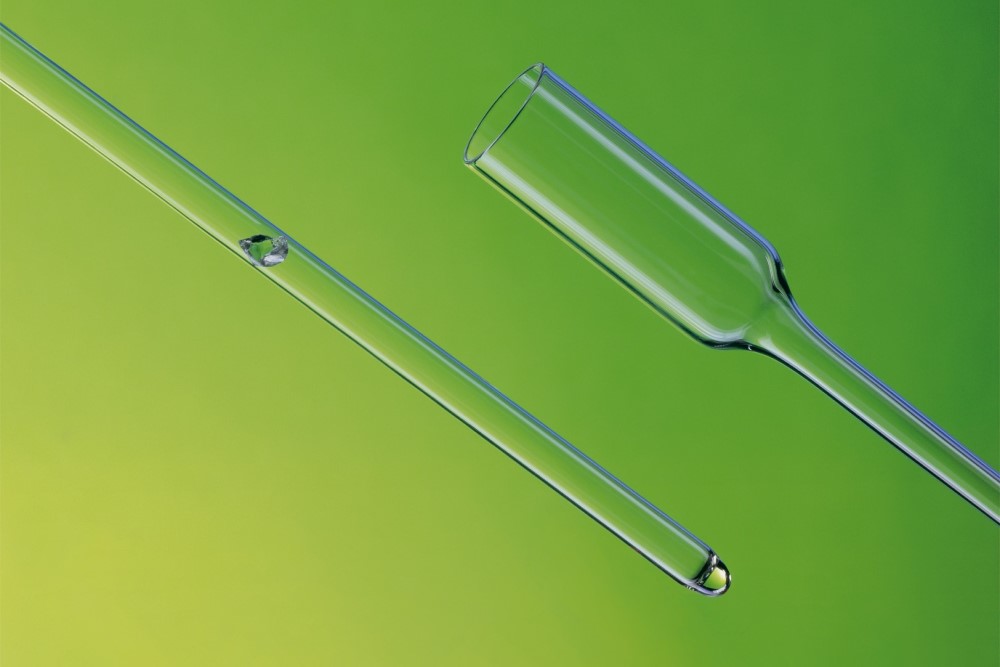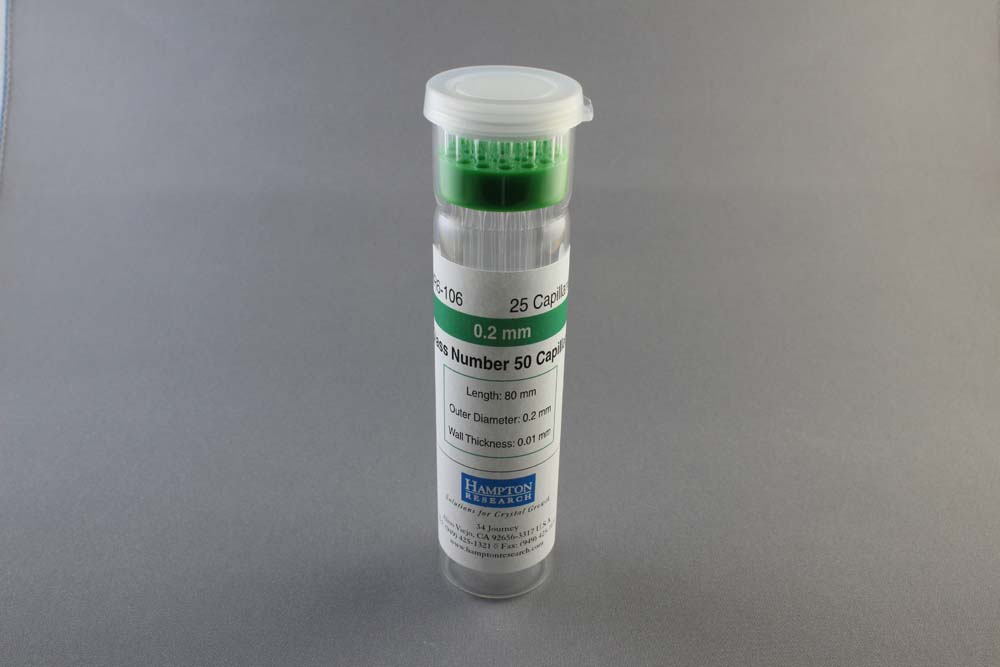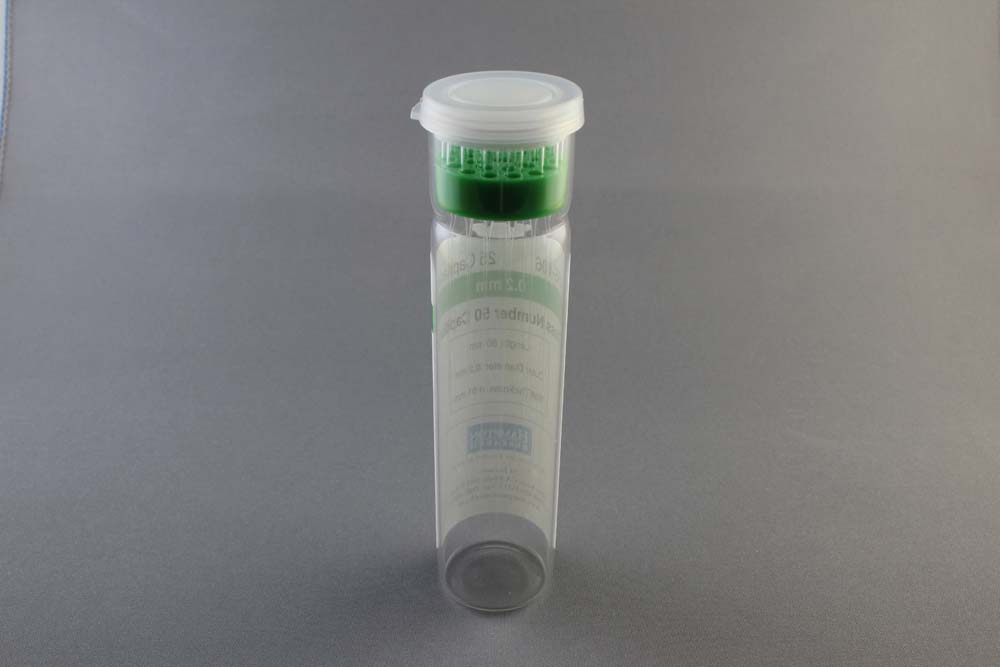Hampton Research蛋白结晶试剂盒






Products > Capillaries, Mounts & Supplies > Capillaries > Glass Number 50 Capillaries
Glass Number 50 Capillaries
Applications
- X-ray data collection
- Liquid-liquid diffusion crystallization
- Gel acupuncture crystallization
Features
- Thin walled – 10 micron
- Glass Number 50 (Glass 0500, borosilicate)
Description
Glass Number 50 (Glass 0500, borosilicate glass) capillaries that are extremely thin walled (approximately 10 micron wall thickness). The length of the capillary has a well defined diameter, with one end having a funnel shape and the other end closed. Glass capillaries have a wall thickness of 0.01 mm and an overall length of 80 mm +/- 5 mm. Glass capillaries are available in a wide range of outside diameters from 0.1 mm to 2.0 mm. They are designed to mount, hold, and store small molecule and biological macromolecular crystals for x-ray data collection. Capillaries can also be used for crystal density measurements and crystal growth experiments. The capillaries can be sealed tightly against moisture and gases using wax, epoxy, or other sealing materials.
In determining what glass or quartz capillary is right for you, please refer to the “Linear Absorption Coefficient µ cm-1” table. This table indicates the amount of radiation that is absorbed by the capillary during x-ray data collection.
For 0.1 mm to 2.0 mm capillaries the open end capillary tube base size is 3.0 +/- 0.15 mm OD x 0.13 +/- 0.10 mm Wall thickness.
The Diameter is measured about 30 to 40 mm from the closed end (measuring instrument: LaserMicrometer LS 7500) The tolerances are as follows.
Diameter Tolerance Minimum Diameter Maximum Diameter
0.1 mm +/-0.05 mm 0.05 mm 0.15 mm
0.2 mm +/-0.05 mm 0.15 mm 0.25 mm
0.3 mm +/-0.05 mm 0.25 mm 0.35 mm
0.4 mm +/-0.05 mm 0.35 mm 0.45 mm
0.5 mm +/-0.05 mm 0.45 mm 0.55 mm
0.6 mm +/-0.05 mm 0.55 mm 0.65 mm
0.7 mm +/-0.05 mm 0.65 mm 0.75 mm
0.8 mm +/-0.05 mm 0.75 mm 0.85 mm
0.9 mm +/-0.05 mm 0.85 mm 0.95 mm
1.0 mm -0.05 +0.25 mm 0.95 mm 1.25 mm
1.5 mm +/-0.25 mm 1.25 mm 1.75 mm
2.0 mm +/-0.25 mm 1.75 mm 2.25 mm
Borosilicate Specifications
Glass type Borosilicate glass 3.3
Density 2.23 g/cm3
Poisson’s number 0.20
Transformation temperature Tg= 525 degrees Celsius
Annealing point approximately 560 degrees Celsius
Softening point approximately 825 degrees Celsius
Working point 1260 degrees Celsius
Refractive index 1.473 at 20 degrees Celsius; 587.6 nm
Hydrolytic resistance, class 1 (DIN ISO 719)
Acid resistance, class 1 (DIN 12 116)
Alkalai resistance, class 2 (DIN ISO 695)
Chemical composition SiO2 81.0%
Na2O 3.5%
Al2O3 2.0%
K2O 0.5%
B2O3 13.0%
Capillaries have only been tested at atmospheric pressure (760 mmHg (torr), 29.92 inHg, 14.696 psi). Use at other pressures has not been tested.
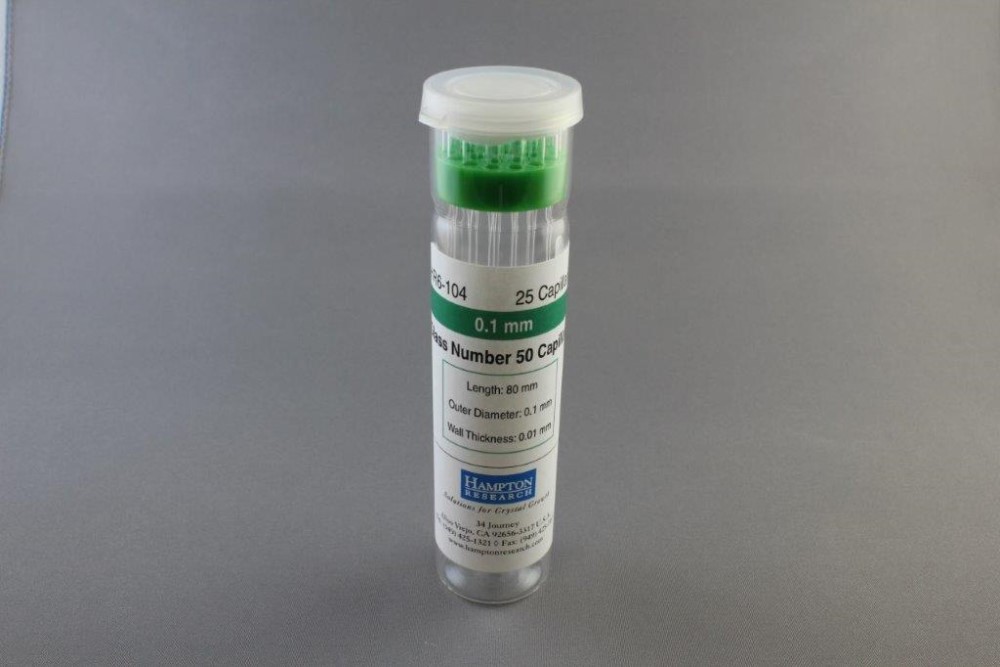
Click to Zoom In
CAT NO
HR6-104
NAME
DESCRIPTION
Size: 0.1 mm – 25 pack
PRICE
$106.00
cart quote
CAT NO
HR6-106
NAME
DESCRIPTION
Size: 0.2 mm – 25 pack
PRICE
$106.00
cart quote
CAT NO
HR6-108
NAME
DESCRIPTION
Size: 0.3 mm – 25 pack
PRICE
$106.00
cart quote
CAT NO
HR6-110
NAME
DESCRIPTION
Size: 0.4 mm – 25 pack
PRICE
$106.00
cart quote
CAT NO
HR6-112
NAME
DESCRIPTION
Size: 0.5 mm – 25 pack
PRICE
$106.00
cart quote
CAT NO
HR6-114
NAME
DESCRIPTION
Size: 0.6 mm – 25 pack
PRICE
$106.00
cart quote
CAT NO
HR6-116
NAME
DESCRIPTION
Size: 0.7 mm – 25 pack
PRICE
$106.00
cart quote
CAT NO
HR6-118
NAME
DESCRIPTION
Size: 0.8 mm – 25 pack
PRICE
$106.00
cart quote
CAT NO
HR6-120
NAME
DESCRIPTION
Size: 0.9 mm – 25 pack
PRICE
$106.00
cart quote
CAT NO
HR6-122
NAME
DESCRIPTION
Size: 1.0 mm – 25 pack
PRICE
$106.00
cart quote
CAT NO
HR6-124
NAME
DESCRIPTION
Size: 1.5 mm – 25 pack
PRICE
$121.00
cart quote
CAT NO
HR6-126
NAME
DESCRIPTION
Size: 2.0 mm – 25 pack
PRICE
$133.00
cart quote
Support Material(s)
 Tolerances for Capillaries
Tolerances for Capillaries Glass Number 50 Technical Data Sheet
Glass Number 50 Technical Data Sheet Related Item(S)
- Capillary Cutting Stone™
- Duco Cement
- Beeswax
- Wax Pen
- Four Color Mounting Clay
- Adjustable Crystal Mount
- Brass Specimen Pin
References


Hampton Research, first in crystallization since 1991, developing and delivering crystallization and optimization screens, reagents, plates, and other tools for the crystallization of biological macromolecules, including proteins (antibody), peptides (insulin), and nucleic acids (DNA).
- Products
- Gallery
- My Account
|
|
|
- Contact Us
- Quick Order
- Support
|
- Privacy Policy
- Terms and Conditions
|
- Products
- Gallery
- My Account
- Support
- Contact Us
- Quick Order
- Privacy Policy
- Terms and Conditions
|
|
|
|
|
|
|
© 2021 HAMPTON RESEARCH CORP.
| Website by Skyhound Internet


